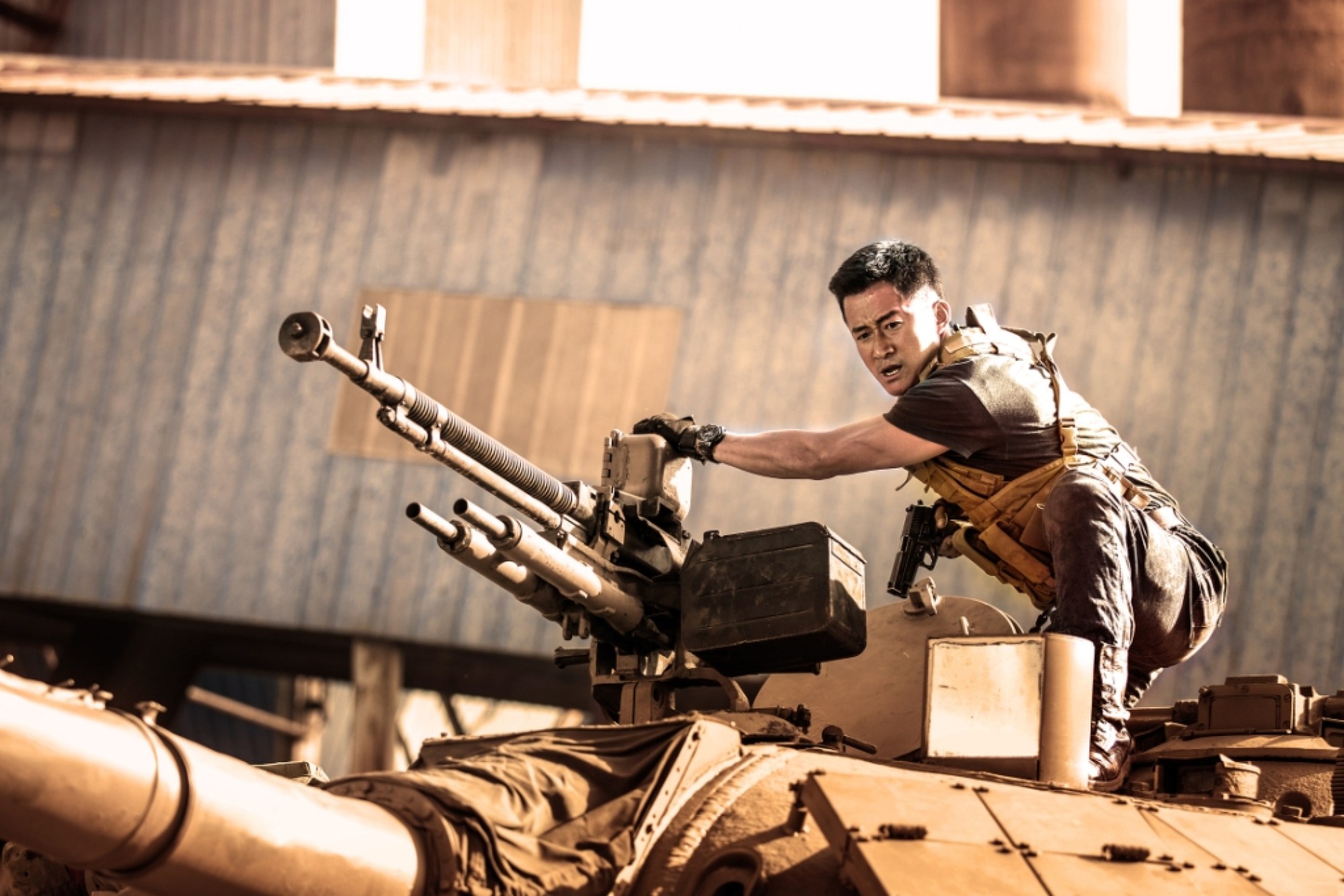
Review | ‘Wolf warrior’ diplomacy’s long pedigree in China, and the man who gave birth to it: Zhou Enlai
- There is nothing new about Chinese diplomats’ theatrical anger and insistence the onus for progress rests with the other side, Bloomberg’s Peter Martin writes
- The same can be said of the flattery with which China beguiled US journalist Edgar Snow, Henry Kissinger and Donald Trump, he explains in a new book
China’s Civilian Army by Peter Martin, Oxford University Press
“Even though a thousand miles away, anyone who affronts China will pay,” read the tagline on the film’s advertising.
To write China’s Civilian Army, Bloomberg’s Peter Martin interviewed dozens of diplomats, and trawled though more than 100 volumes of memoirs by major and minor figures alike.

He finds no shocking revelations; even when written under pseudonyms and published during periods of relative political openness, these books were still censored.
Nevertheless, Martin still manages to extract titbits that reveal the petty victories and pratfalls of those on the front line of modern China’s diplomatic development.
He also shows that China’s wolf-like approach is, in fact, long in the tooth, and China’s diplomatic service is still operating in the same pseudo-military style instituted in 1949 by its founder, Zhou Enlai.
Zhou declined to use defecting Kuomintang diplomats, instead assembling a new Foreign Ministry using criteria that valued political class above all else.
Zhou was relatively cultured by the modest standards of the Chinese Communist Party hierarchy, speaking both English and French, but most of his first cohort of fresh graduates, People’s Liberation Army officers and peasant revolutionaries knew little if anything of the outside world. Many had never even met a foreigner.

“Diplomats were to be the messengers who delivered the Party’s line on foreign affairs, their room to improvise almost non-existent,” says Martin, which meant that meaningful discussions with their foreign counterparts were virtually impossible.
Disabled by their one-sided education, diplomats found it hard to differentiate truth from propaganda, and still do.
Those posted to Ottawa, in Canada, in 1970 decided that the comfortable and well-equipped old folks’ home next to the embassy was a ruse to mislead them about life under capitalism.
Fifty years on, a newly minted diplomat interviewed as he was about to set off for his first posting, wanted to know whether 1989’s Tiananmen Square demonstrations had been “a plot hatched and executed by the American embassy”. Martin was unable to persuade him otherwise.
Practices laid down under Zhou are still employed today, such as enticing foreigners with promises of liberalisations, however petty, but which there is no intention whatsoever to institute.

The same flattery, banquets and access to high-level figures employed to beguile American journalist Edgar Snow into painting a positive picture of Mao Zedong in 1936, and to seduce US Secretary of State Henry Kissinger in 1971, were those to which US president Donald Trump also succumbed in 2017.
The use of an element of theatrical anger is nothing new. Nor is the insistence that the responsibility for making progress remains wholly with the other side. And diplomatic staff, always seen in pairs, still spend as much time reporting on each other as they do on observing the situation in their host countries.
In the past, “diplomats watched Mao push Chinese politics in an ever more radical direction, they followed his lead in their interactions with foreigners by barking slogans and handing out the Chairman’s Little Red Book”, writes Martin.
Today centralisation of power on a scale not seen since Mao has merely forced a return to form.
State councillor Yang Jiechi’s haranguing of Hillary Clinton at an Asean forum in 2010 prefigured his behaviour towards US officials at a summit in Alaska in March. And, in fact, the young man selected by Zhou to go overseas to study in 1972, and now China’s most senior diplomatic figure, has used performative anger throughout his diplomatic career.

But any diplomat must publicly be seen to be entirely behind Xi Jinping’s political agenda.
Fear plays as large a role as ambition, and decades after Mao, diplomatic staff can again be found handing out books, this time on “Xi Jinping Thought”.
China’s diplomats are not dim. Many hold advanced degrees from the best universities the West has to offer, but it remains dangerous to stray from slogans, even when they know that foreign audiences see through them.
“Chinese envoys are behaving so undiplomatically because they are unable to extricate themselves from the constraints of a secretive, paranoid political system,” says Martin. “Quietly, many understand that their behaviour is contributing to a global backlash against China.”
Martin’s measured and readable account succeeds in making China’s self-destructive approach understandable, and its diplomats human.

China’s diplomacy is neutered by always concentrating on the needs of the Party; the “wolf warriors” are merely doing tricks for their masters in Beijing, and they remain the house pets they always were – just sheep in wolf’s clothing.

